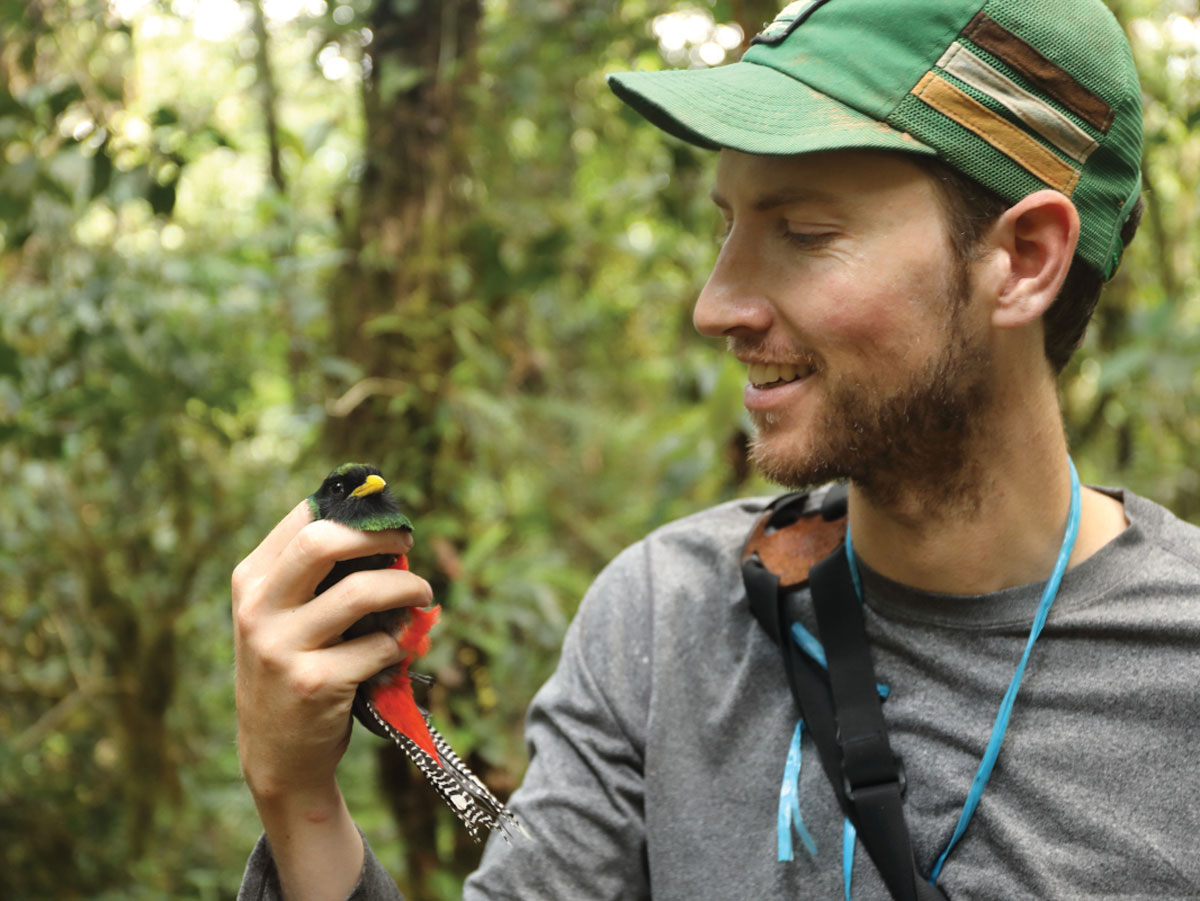While he was an undergraduate student at Macalester College, in St. Paul, Minn. Ben Freeman took a semester off to travel to Bolivia to work as a field assistant on a project that studied the migratory behavior of tropical birds, like the tropical kingbird. The immersive experience of collecting data, tracking individual birds, and making behavioral observations left Freeman hooked on field biology.
“It just blew my mind.… There are more species in 5 kilometers around where I was staying than there are in the entirety of North America,” he said.
Freeman went on to work as a bird guide in Colombia, and he became enamored of why different species live where they do. Among other factors, he saw climate change become a prominent reason for birds’ residence and change in habitat. In mountainous regions, climate change causes species to move uphill to escape warming temperatures, like they are riding an escalator, Freeman said. “But then for species that live at the top of the mountain, they have nowhere higher to move up to. So, for them, it’s an escalator to extinction.”
In one 2018 study, Freeman and colleagues discovered that this escalator is already running out in Peru. Returning to the same mountain ridge, Cerro de Pantiacolla, that his graduate school adviser, John Fitzpatrick had surveyed in 1985, Freeman and other scientists resurveyed the tropical bird species in the area, including the scarlet-breasted fruiteater. There were fewer birds at the ridgetop, and of the 16 bird species that previously lived at high altitudes, the researchers were unable to account for eight of them.
“The future that I want personally to live in is a future world that has as much of our Earth’s biodiversity as possible.”
These findings prove that climate change is happening now and isn’t just a future worry. The escalator to extinction is “something that’s already happened in my lifetime,” said Freeman, now a postdoctoral fellow at the University of British Columbia in Canada.
Although there are ways to predict climate change’s impact on bird species, Freeman believes fieldwork is imperative. “We need to go out in the field and see what’s happening as a way both to understand what’s happening in nature and to understand whether we can believe these model predictions or whether we need to revise those models,” he said.
“The future that I want personally to live in is a future world that has as much of Earth’s biodiversity as possible,” Freeman said.
This profile is part of a special series in our August 2022 issue on science careers.
—Richard Sima (@richardsima), Science Writer


